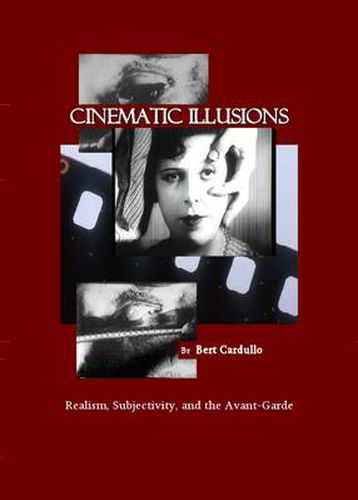Readings Newsletter
Become a Readings Member to make your shopping experience even easier.
Sign in or sign up for free!
You’re not far away from qualifying for FREE standard shipping within Australia
You’ve qualified for FREE standard shipping within Australia
The cart is loading…






Cinematic Illusions: Realism, Subjectivity, and the Avant-Garde is a collection of twelve essays arranged around the primordial subject of realism and anti-realism (the experimental or non-representational) in film. The book treats not only the issue of realism versus anti-realism in the cinema, but also a number of subjects related to thisissue: sex; violence; the avant-garde; subjective response versus objective creation; and the New American Cinema versus Italian Neorealism and the French New Wave. In sum, Cinematic Illusions treats the subject of illusion from the point of view of the cinema’s unsurpassed ability to create not only the illusion of reality, but also the reality of illusion on the silver screen.There are a number of books that treat this subject from an abstract or theoretical point of view. The virtue of Cinematic Illusions is that it treats the subject in actual filmic practice and in highly readable yet at the same time subtly expressive prose. In combination with the subjects listed above, moreover, this collection of essays treats such major film directors as Robert Bresson, Vittorio De Sica, and Michelangelo Antonioni–each of whom, in his own way, confronted the question of what constitutesrealism in the cinema.
$9.00 standard shipping within Australia
FREE standard shipping within Australia for orders over $100.00
Express & International shipping calculated at checkout
Cinematic Illusions: Realism, Subjectivity, and the Avant-Garde is a collection of twelve essays arranged around the primordial subject of realism and anti-realism (the experimental or non-representational) in film. The book treats not only the issue of realism versus anti-realism in the cinema, but also a number of subjects related to thisissue: sex; violence; the avant-garde; subjective response versus objective creation; and the New American Cinema versus Italian Neorealism and the French New Wave. In sum, Cinematic Illusions treats the subject of illusion from the point of view of the cinema’s unsurpassed ability to create not only the illusion of reality, but also the reality of illusion on the silver screen.There are a number of books that treat this subject from an abstract or theoretical point of view. The virtue of Cinematic Illusions is that it treats the subject in actual filmic practice and in highly readable yet at the same time subtly expressive prose. In combination with the subjects listed above, moreover, this collection of essays treats such major film directors as Robert Bresson, Vittorio De Sica, and Michelangelo Antonioni–each of whom, in his own way, confronted the question of what constitutesrealism in the cinema.